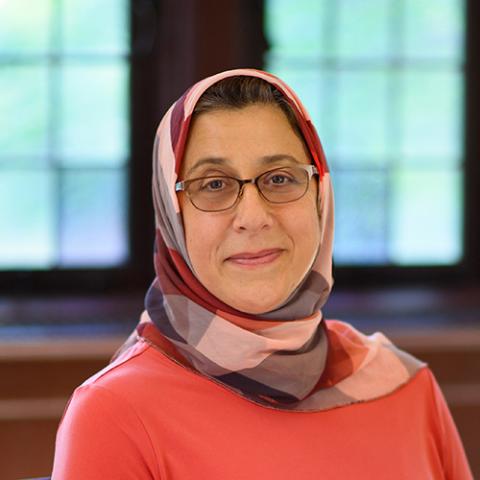Dean of the Princeton School of Public and International Affairs, Princeton University
Edwards S. Sanford Professor of Politics, Princeton University
Co-Founder and Co-Principal Investigator, Arab Barometer
Areas of Expertise: Public opinion, democratization, civic engagement in the Arab world, international relations, women and gender, electoral behavior, governance, immigrants, and religion and politics.
Available for Interviews in: English and Arabic
Amaney A. Jamal is Dean of the Princeton School of Public and International Affairs and the Edwards S. Sanford Professor of Politics, Professor of Politics and International Affairs at Princeton University. She is the former Director of the Mamdouha S. Bobst Center for Peace and Justice. Jamal directs the Workshop on Arab Political Development and the Bobst-American University of Beirut Collaborative Initiative. She is also the co-founder and co-principal investigator at Arab Barometer.
Her book, Barriers to Democracy (2007), which explores the role of civic associations in promoting democratic effects in the Arab world, won the 2008 American Political Science Best Book Award in the Comparative Democratization section. Her other books include, Of Empires and Citizens and her co-edited volume Arab Americans Before and After 9/11. Jamal’s articles have appeared in the American Journal of Political Science, Journal of Politics, Comparative Political Studies, Journal of Conflict Resolution, Comparative Politics, Perspectives on Politics, International Migration Review, and other venues. Her article “Does Islam Play a Role in anti-Immigrant Sentiment: An Experimental Approach.”, in Social Science Research 2015 won the 2016 Louis Wirth Best Article Award: American Sociological Association, International Migration Section.
Jamal is the co-founder and the co-Principal Investigator of Arab Barometer Project (Winner of the Best Dataset in the Field of Comparative Politics (Lijphart/Przeworski/Verba Dataset Award 2010), and has secured over 5 million dollars in grants for this and other projects from the Middle East Partnership Initiative (MEPI), National Science Foundation (NSF), NSF: Time-Sharing Experiments for the Social Sciences (TESS), Qatar National Research Fund, (QNRF), United States Institute of Peace (USIP), the International Development Research Centre (IDRC), Carnegie Corporation of New York, and the Luce Foundation.
In 2006, Jamal was named a Carnegie Scholar. She holds a Phd from the University of Michigan (2003). Her areas of specialization are the Middle East and North Africa, mass and political behavior, political development and democratization, inequality and economic segregation, Muslim Immigration (US and Europe), gender, race, religion, and class.
Articles, Publications, Appearances:
